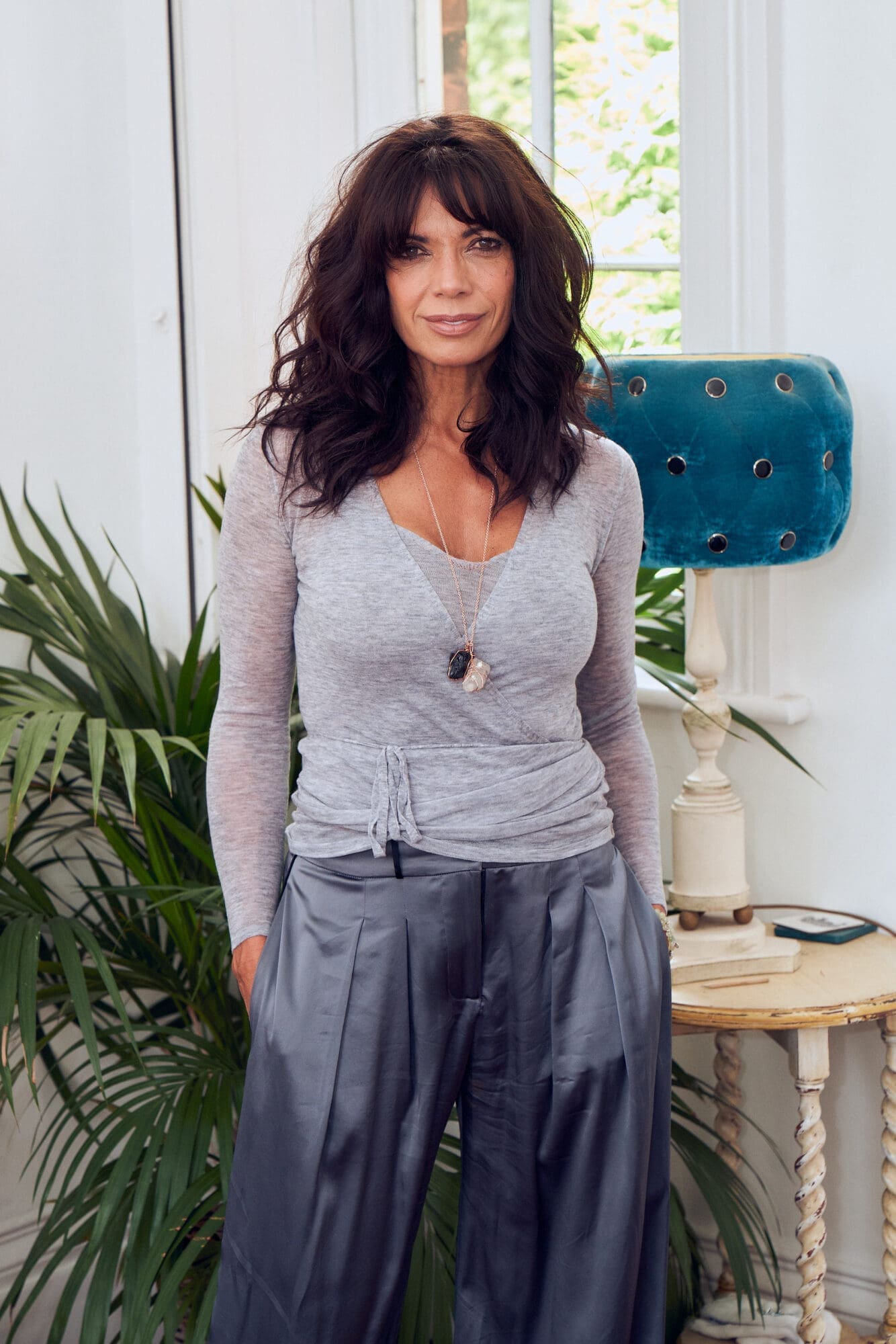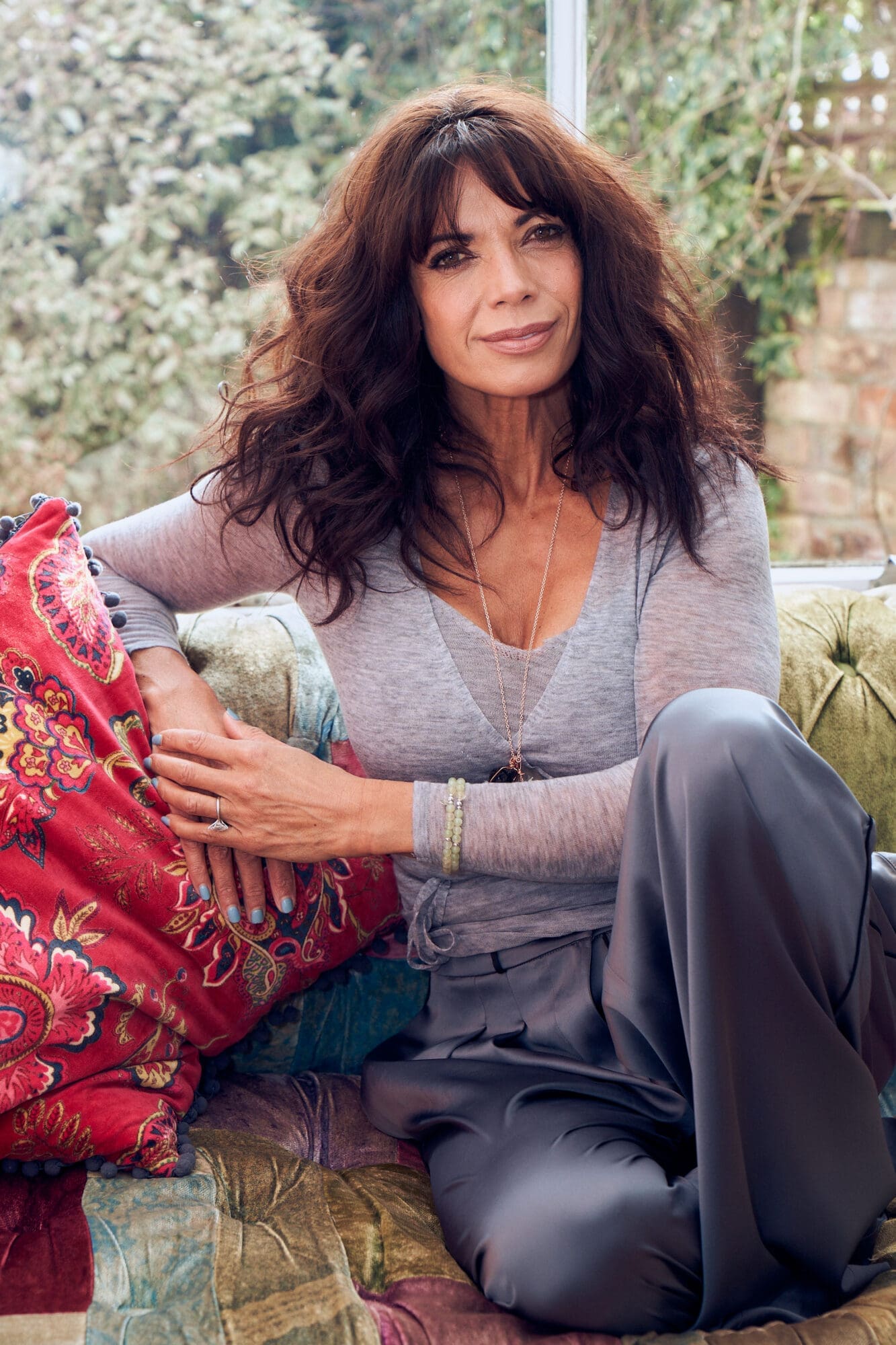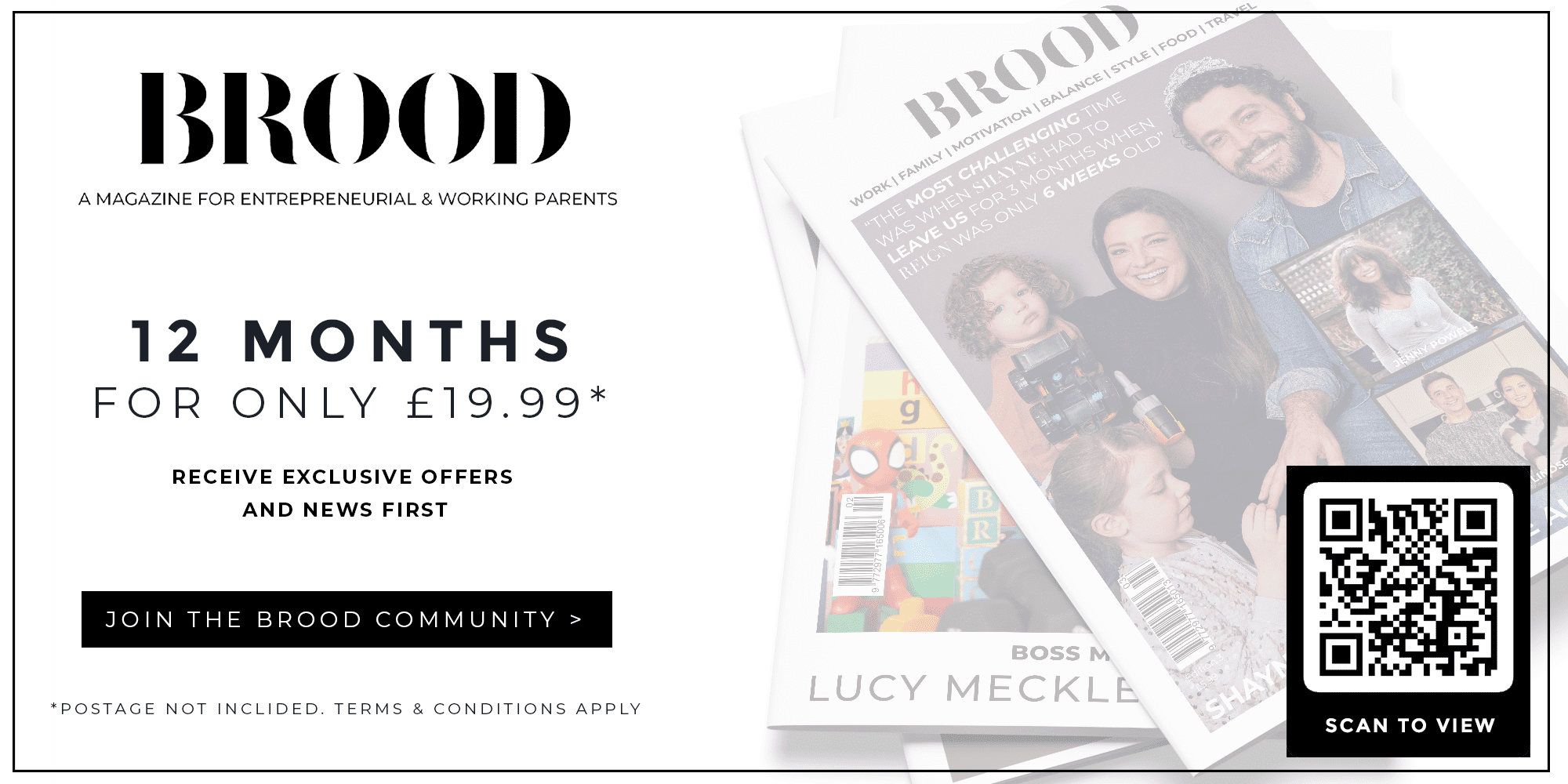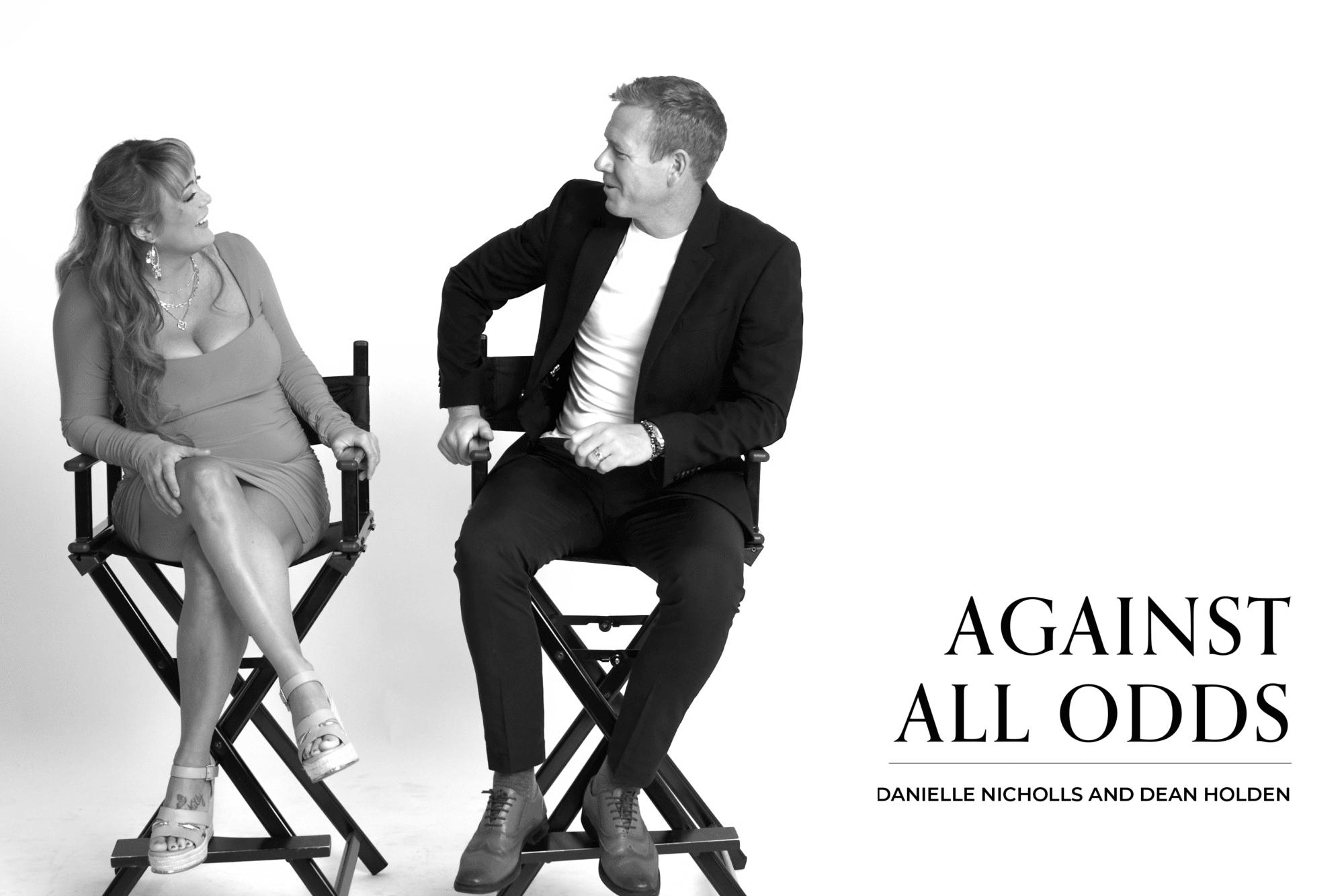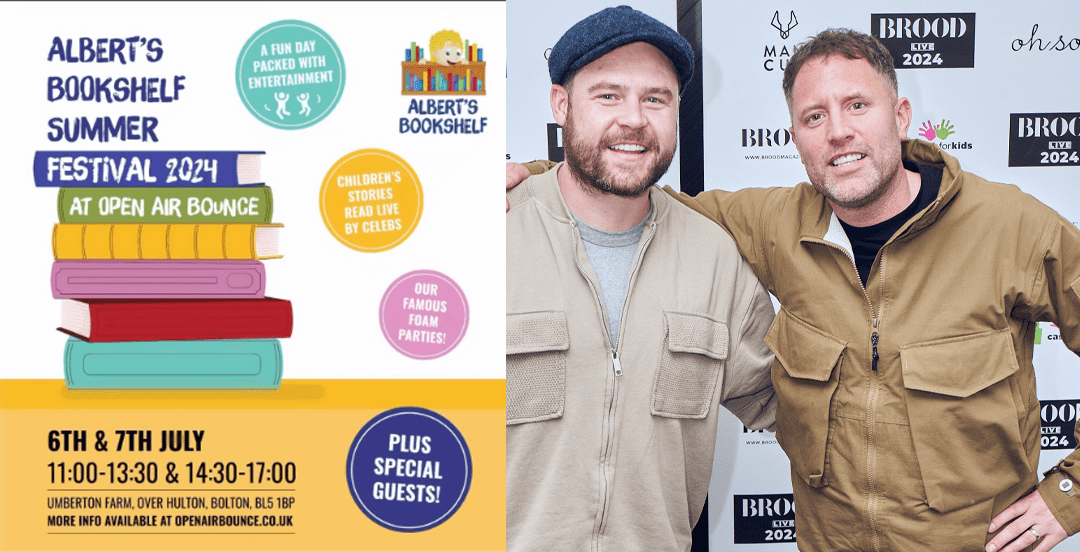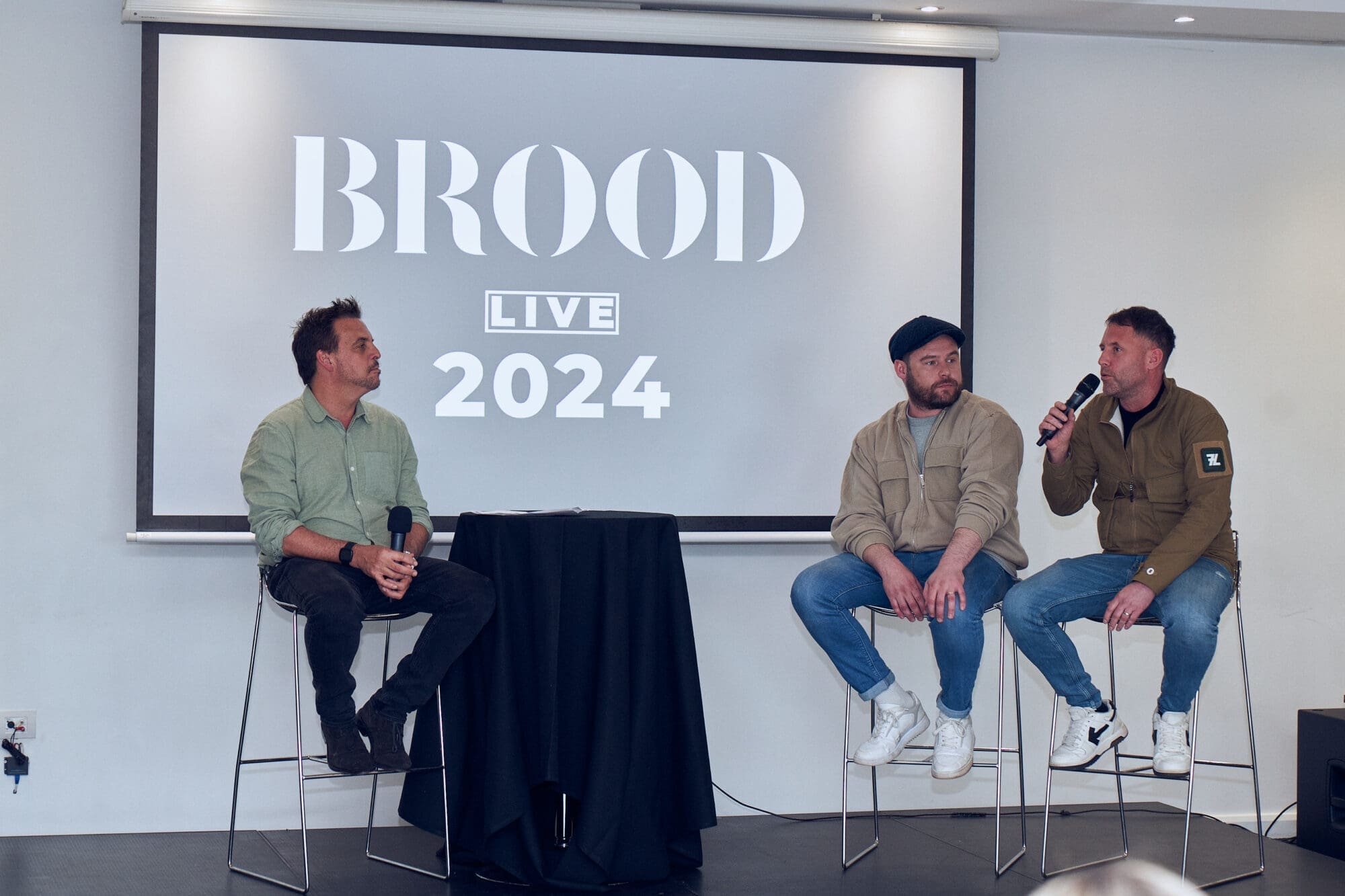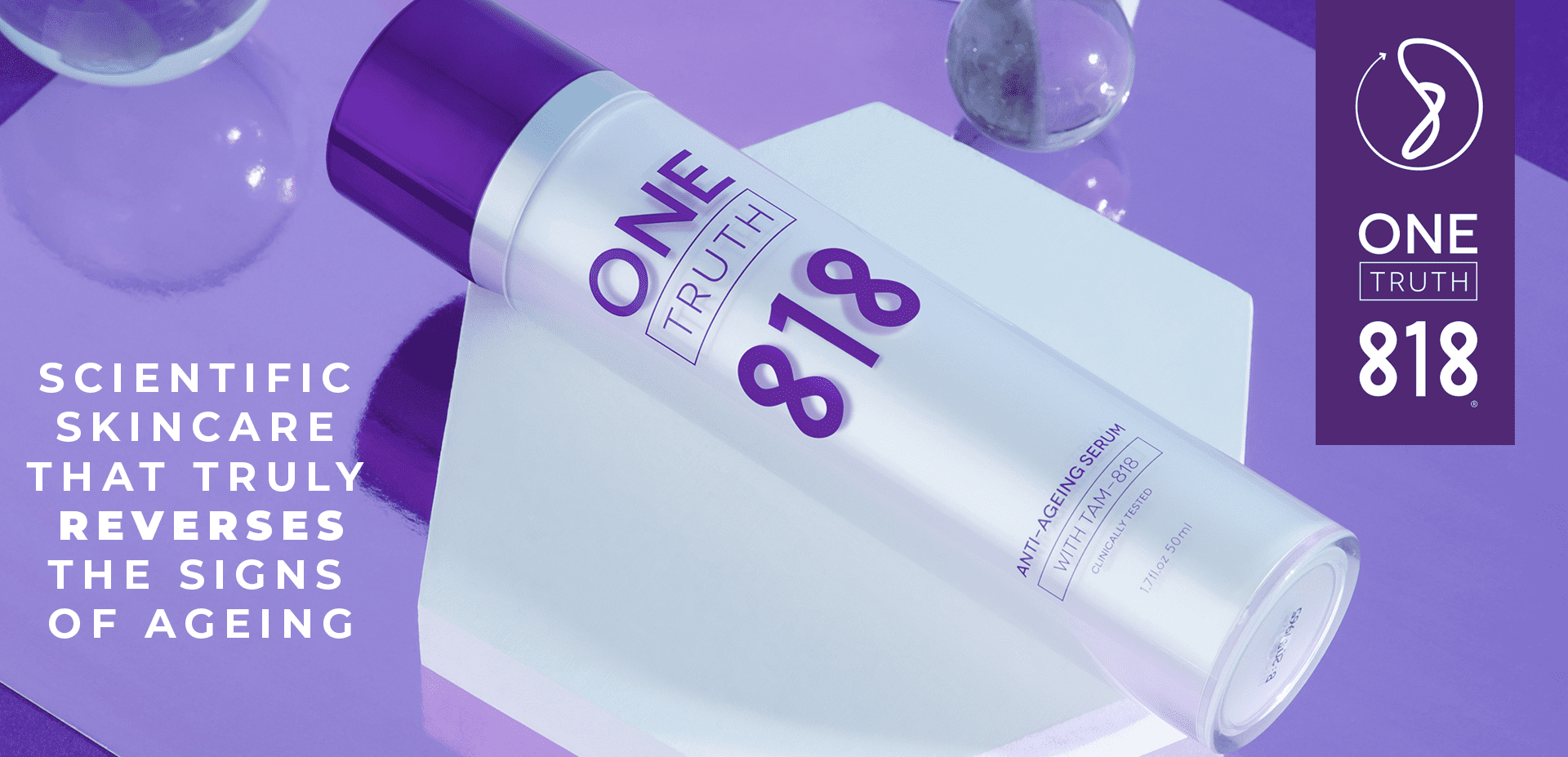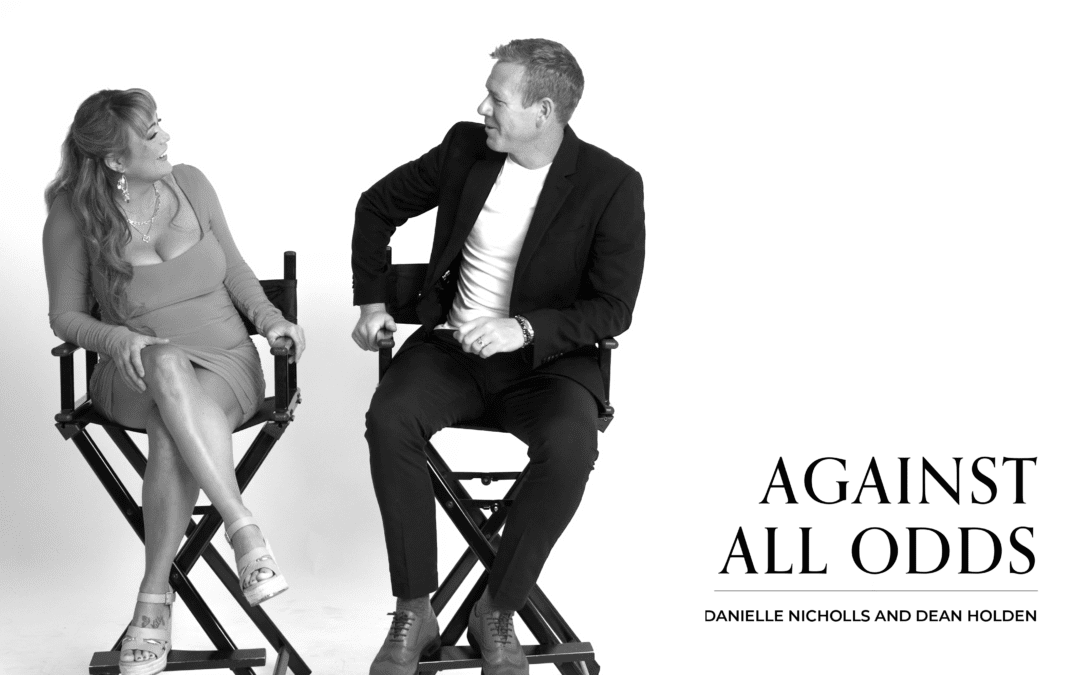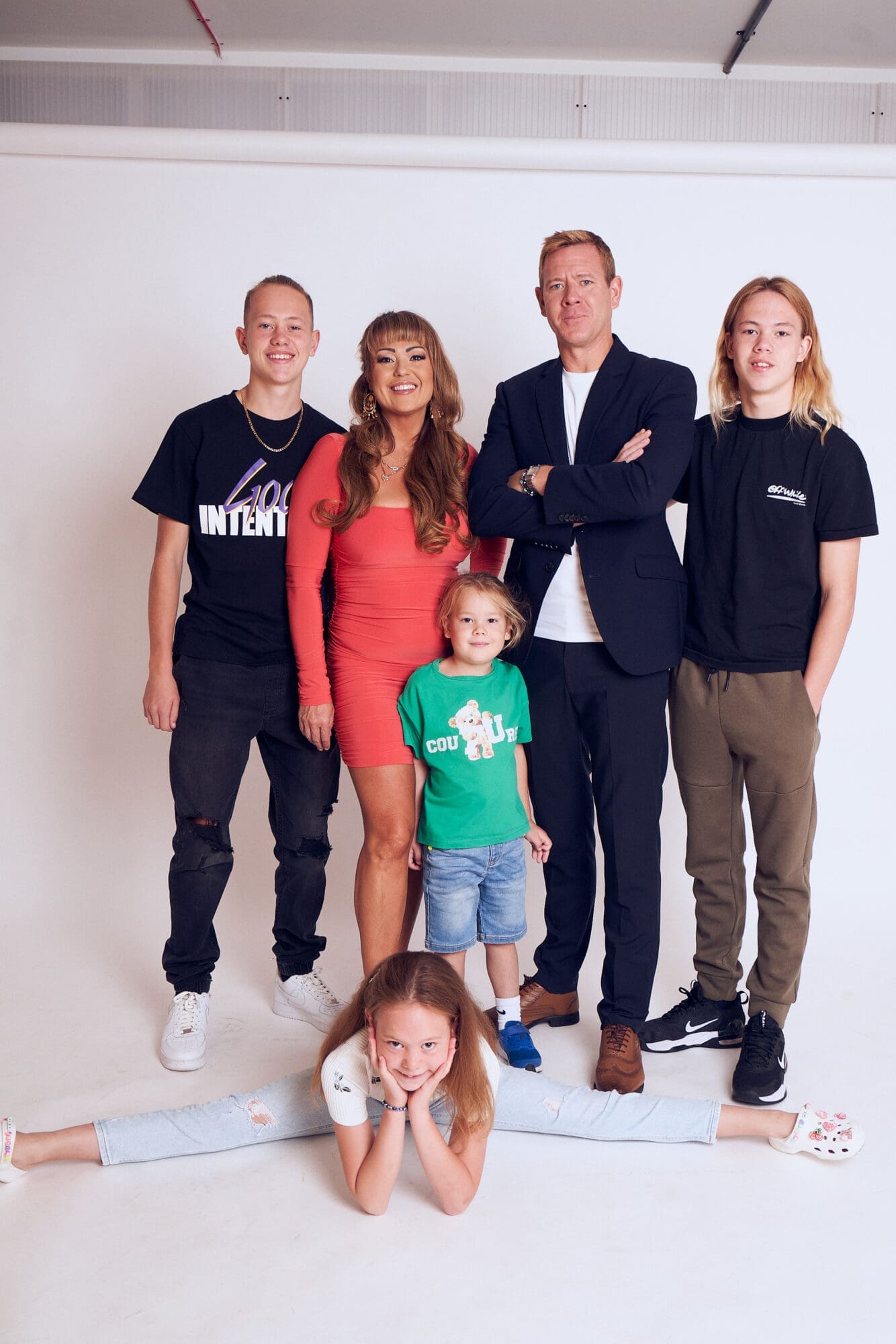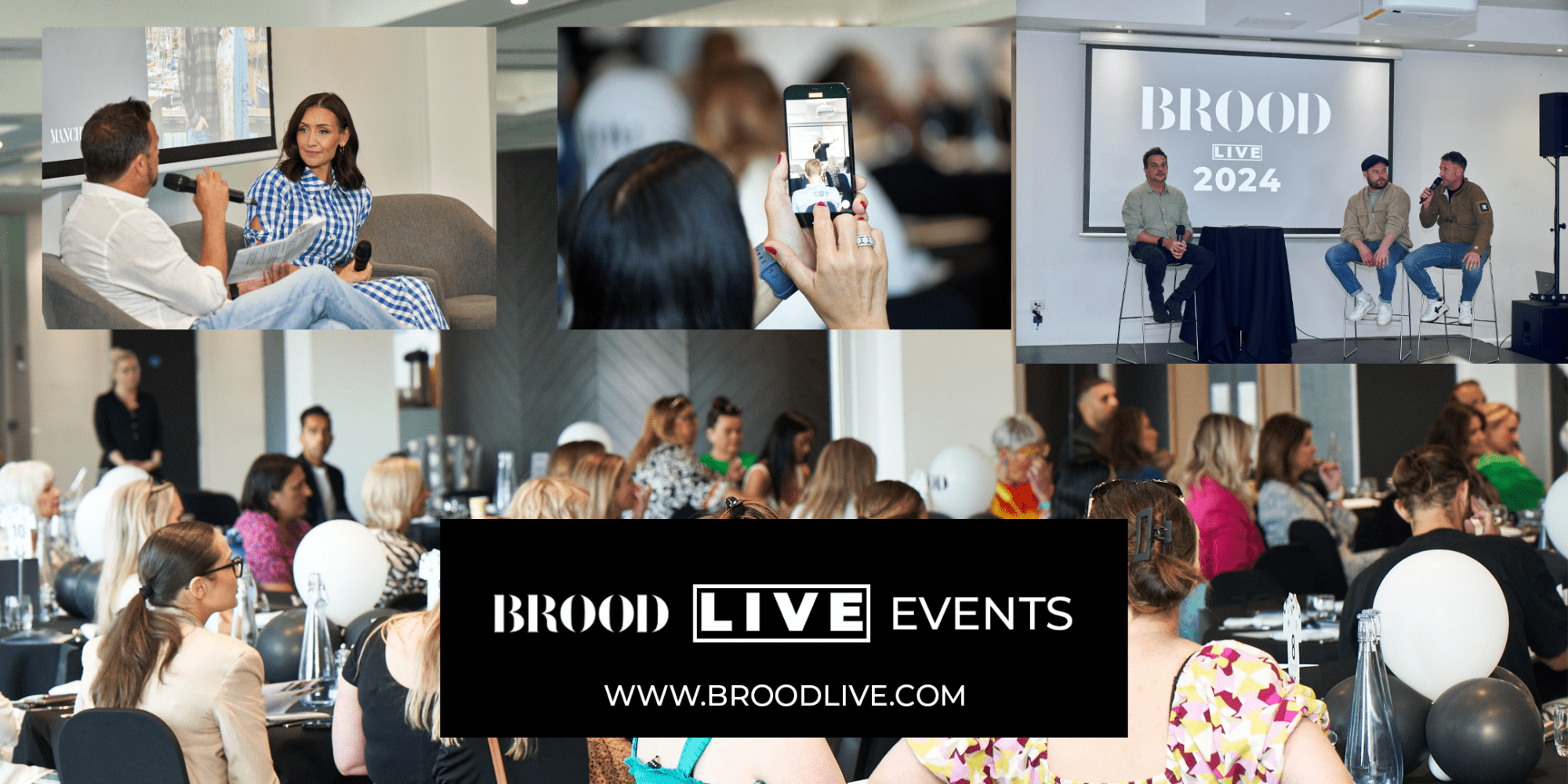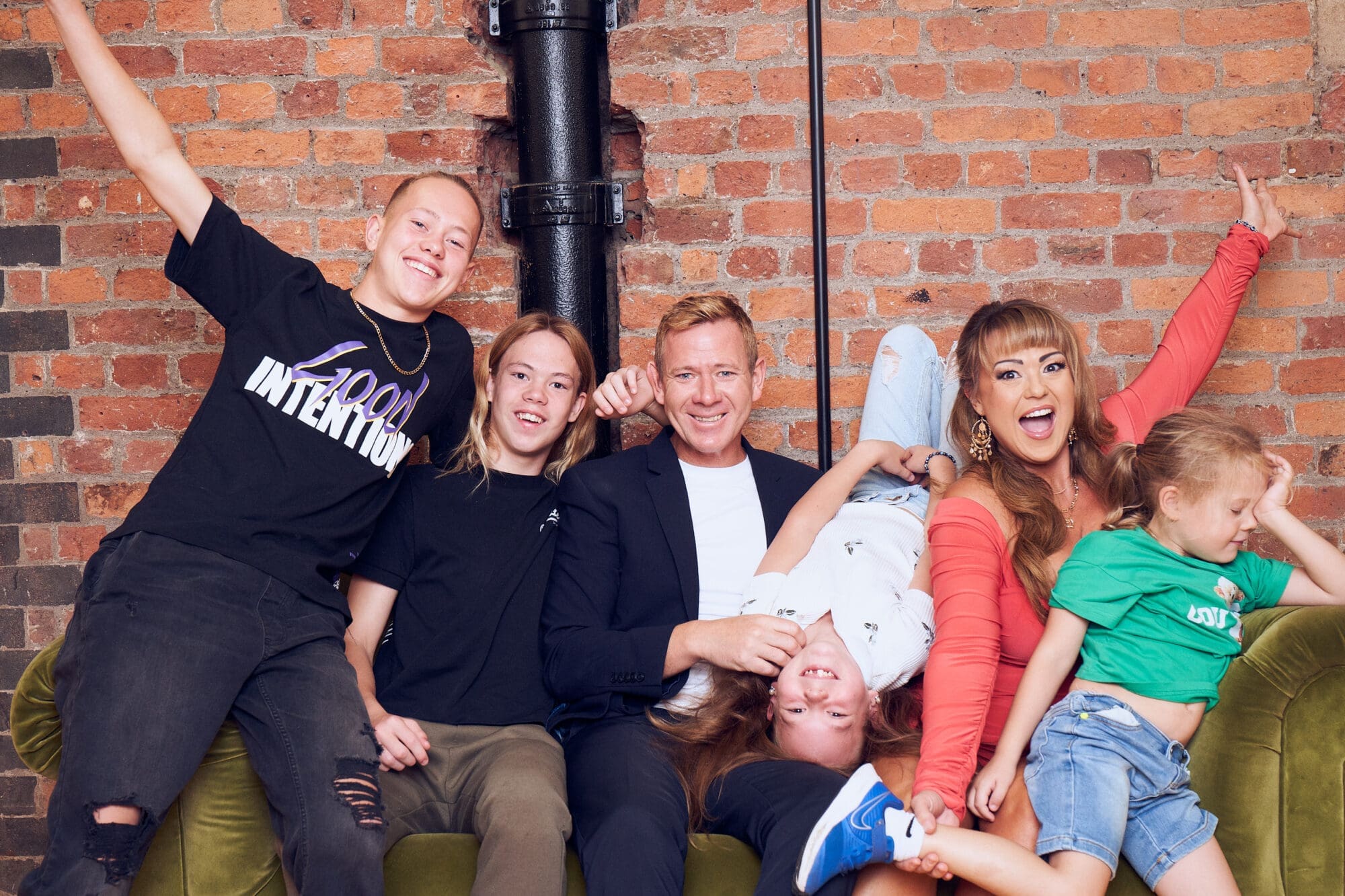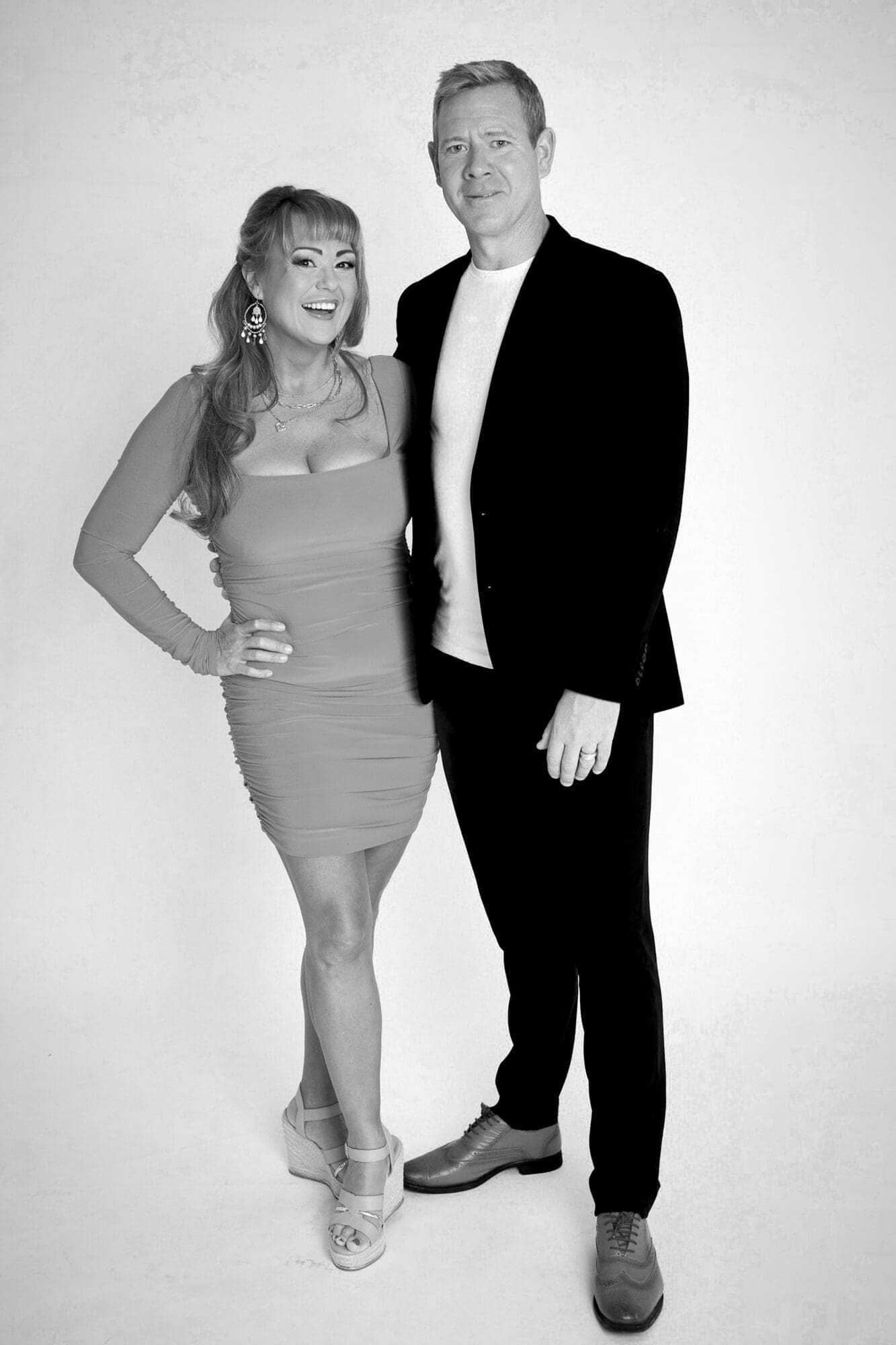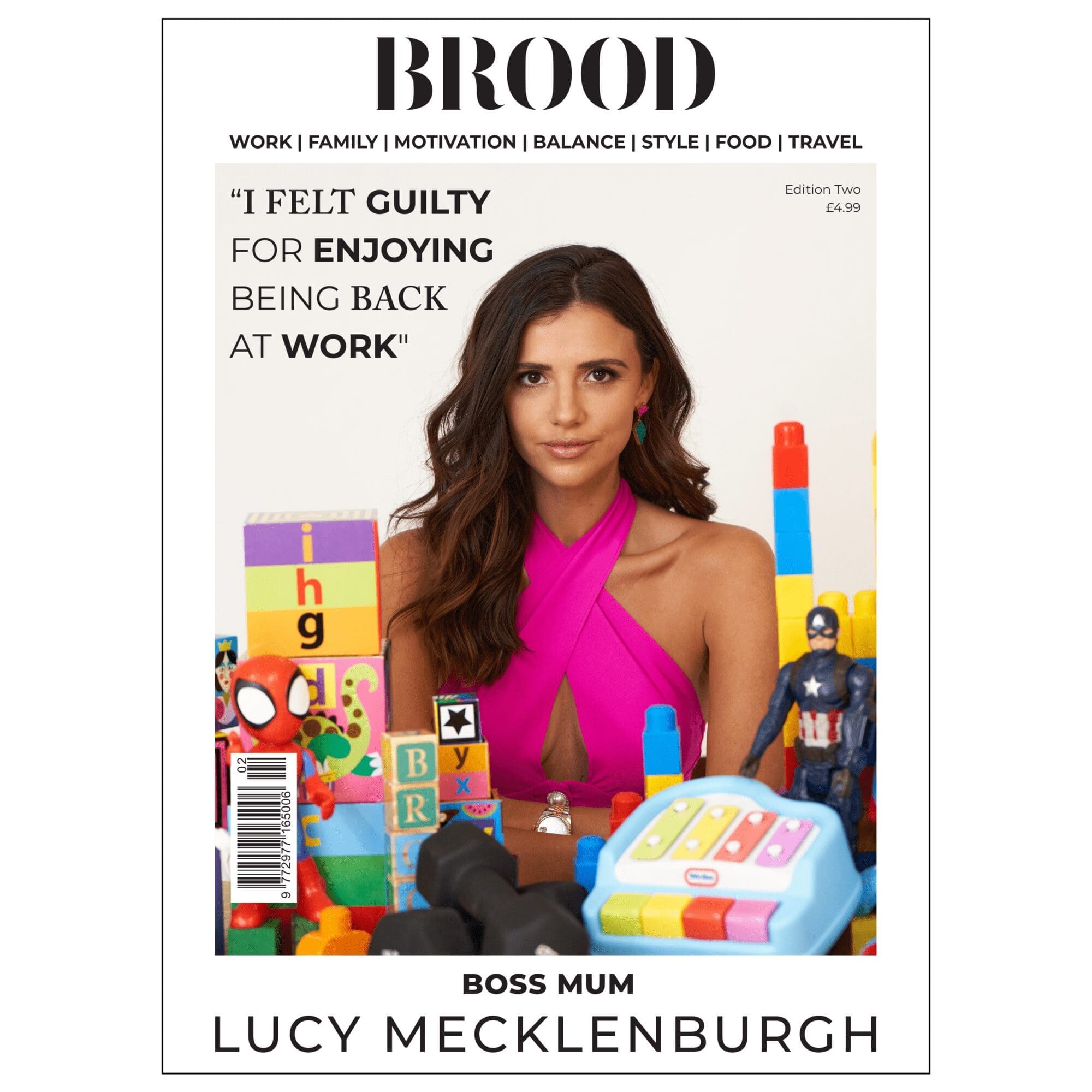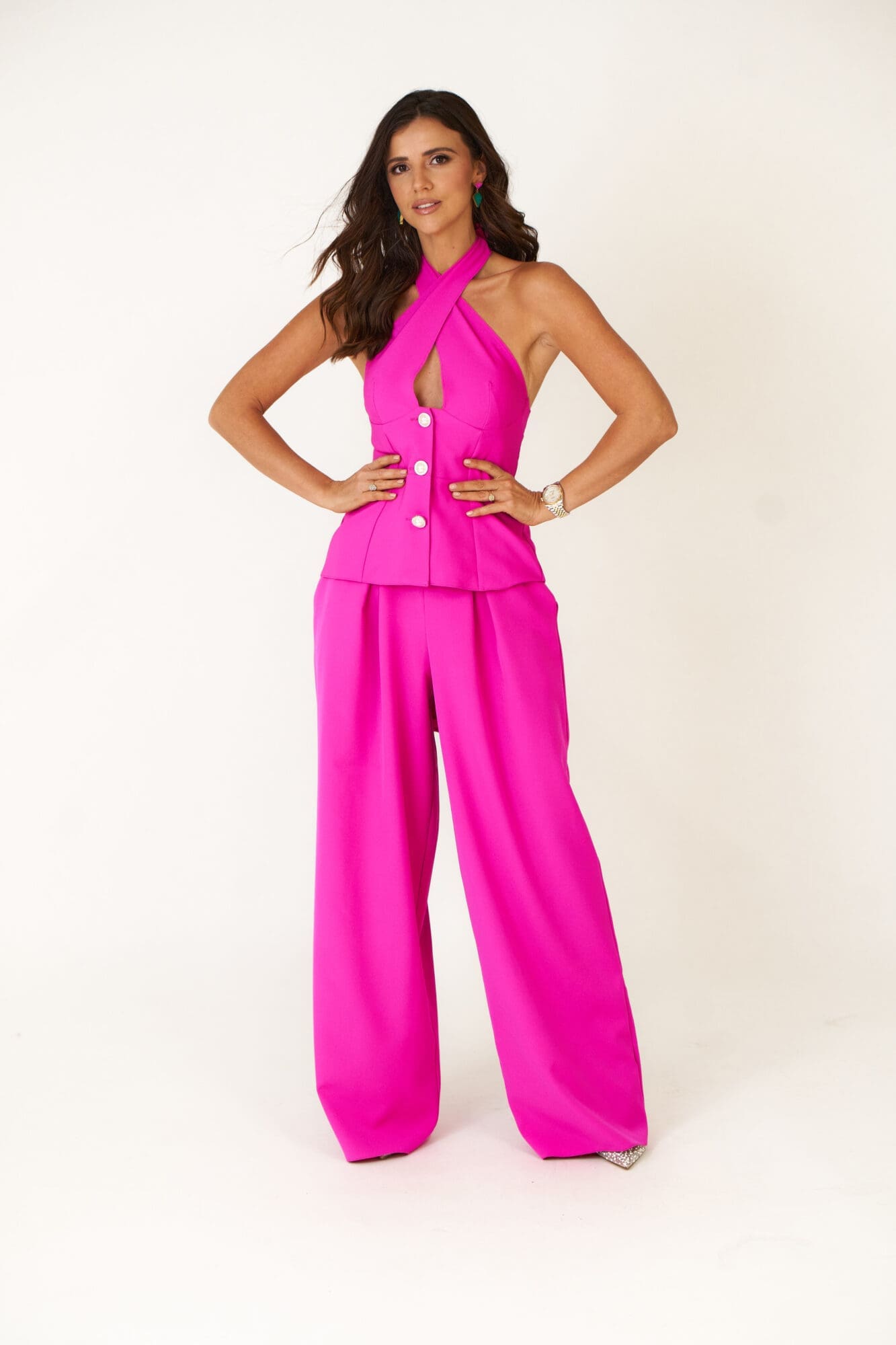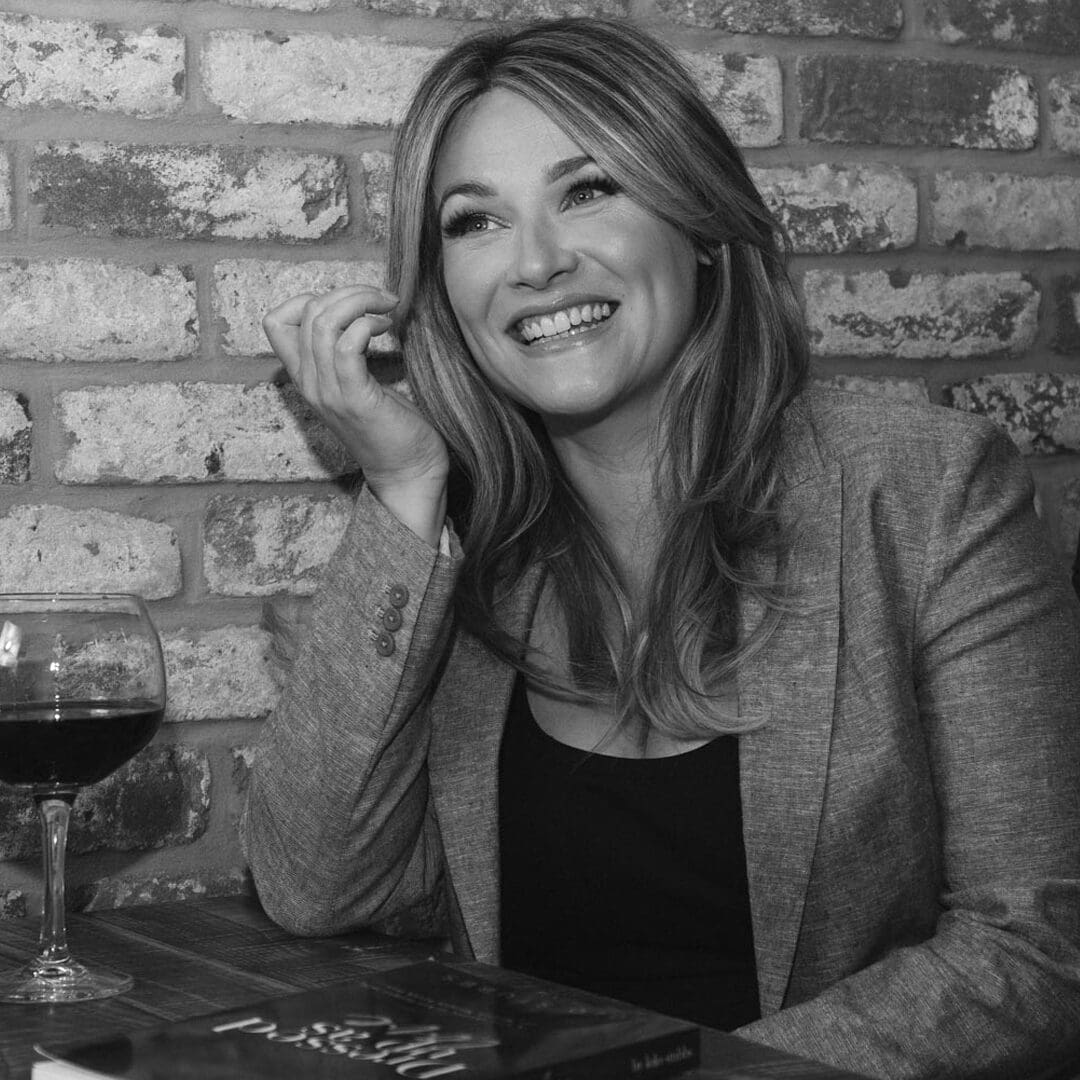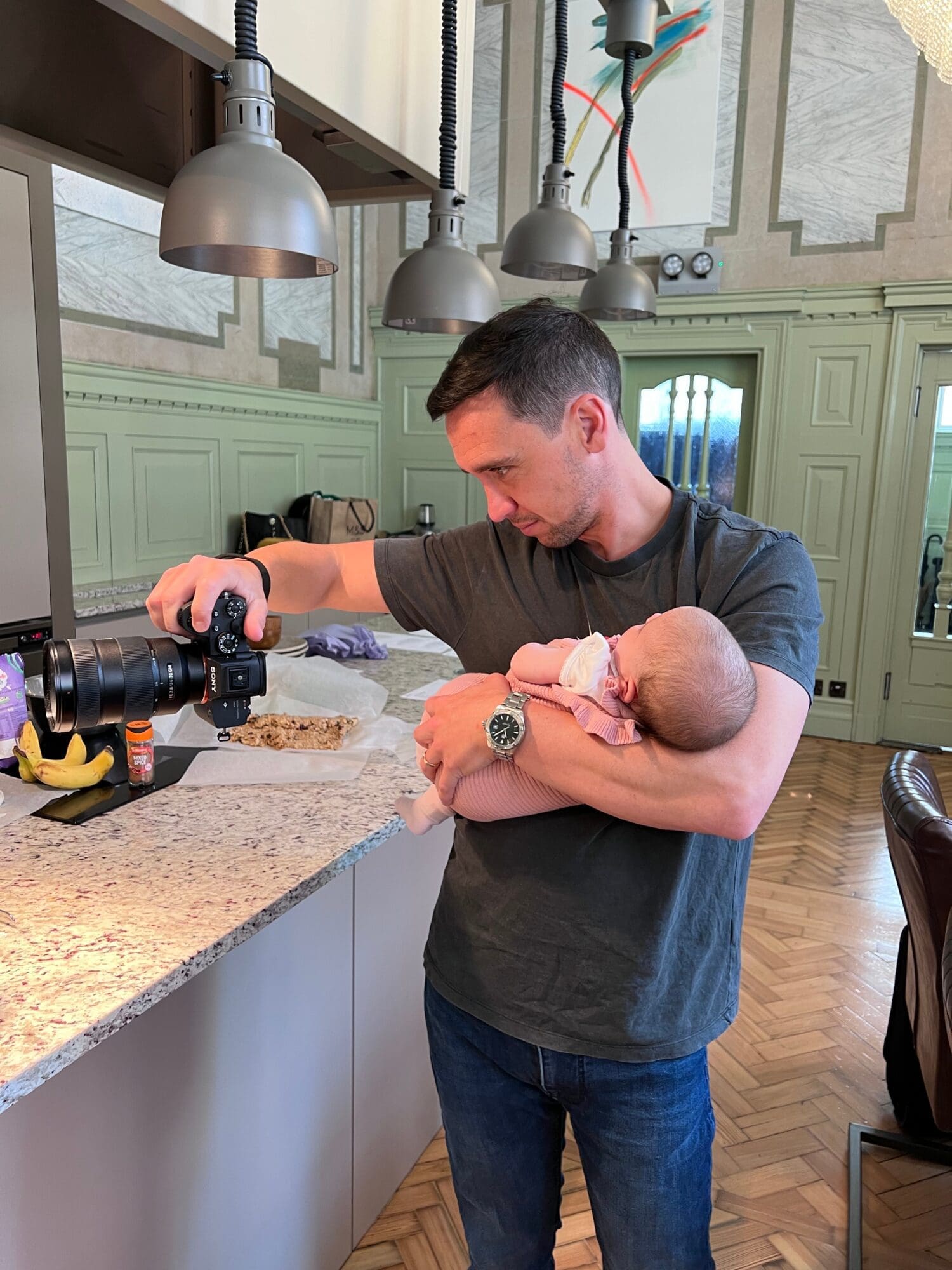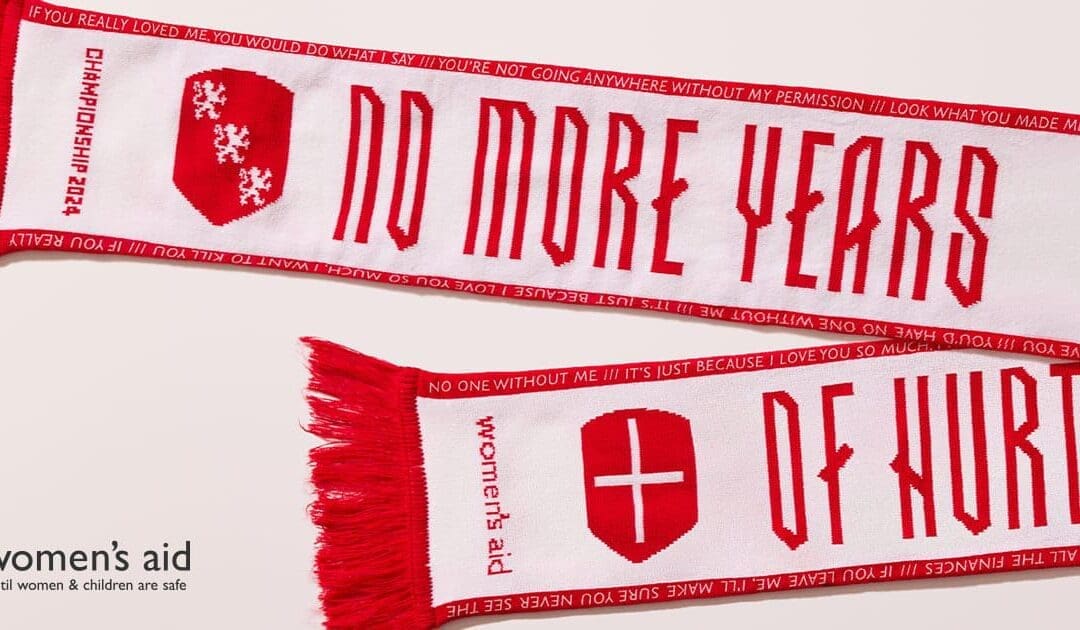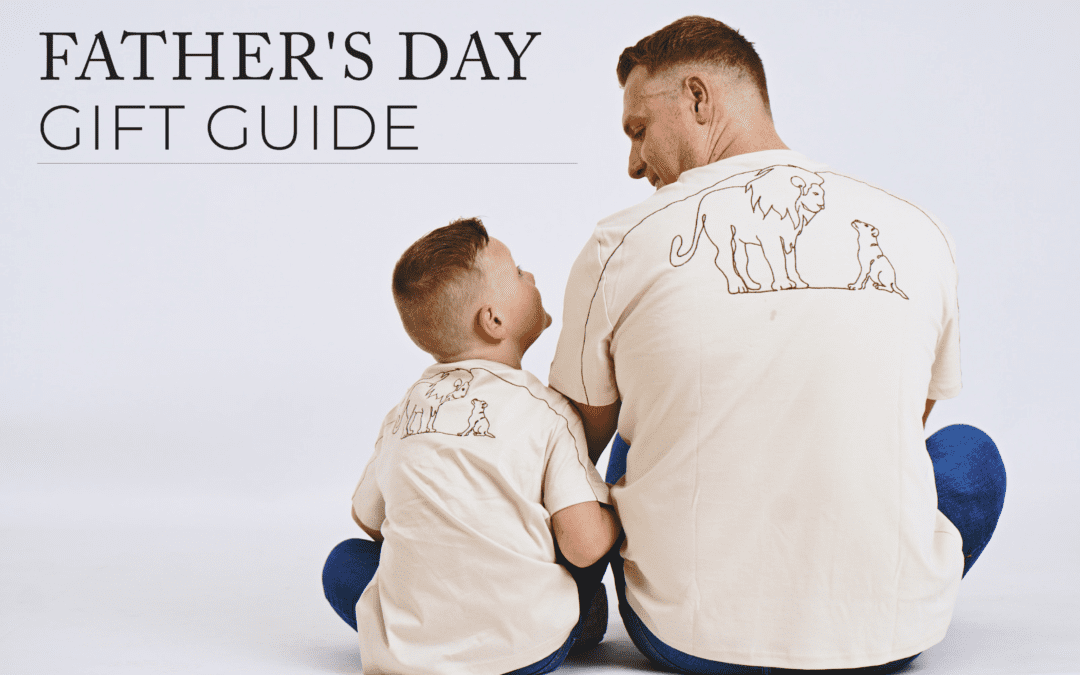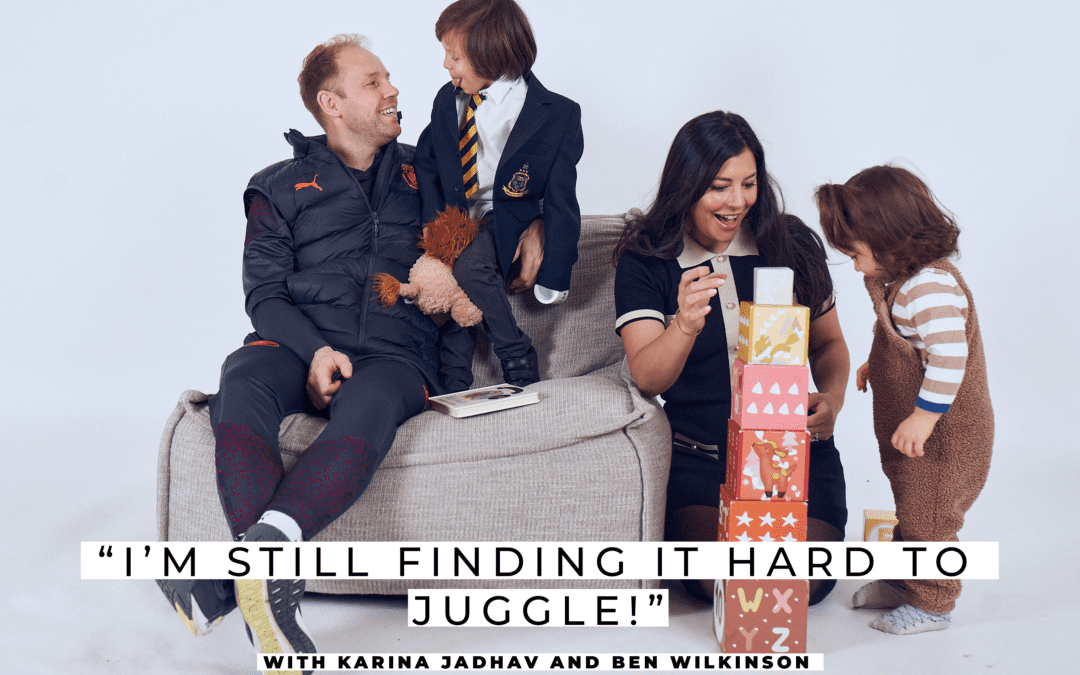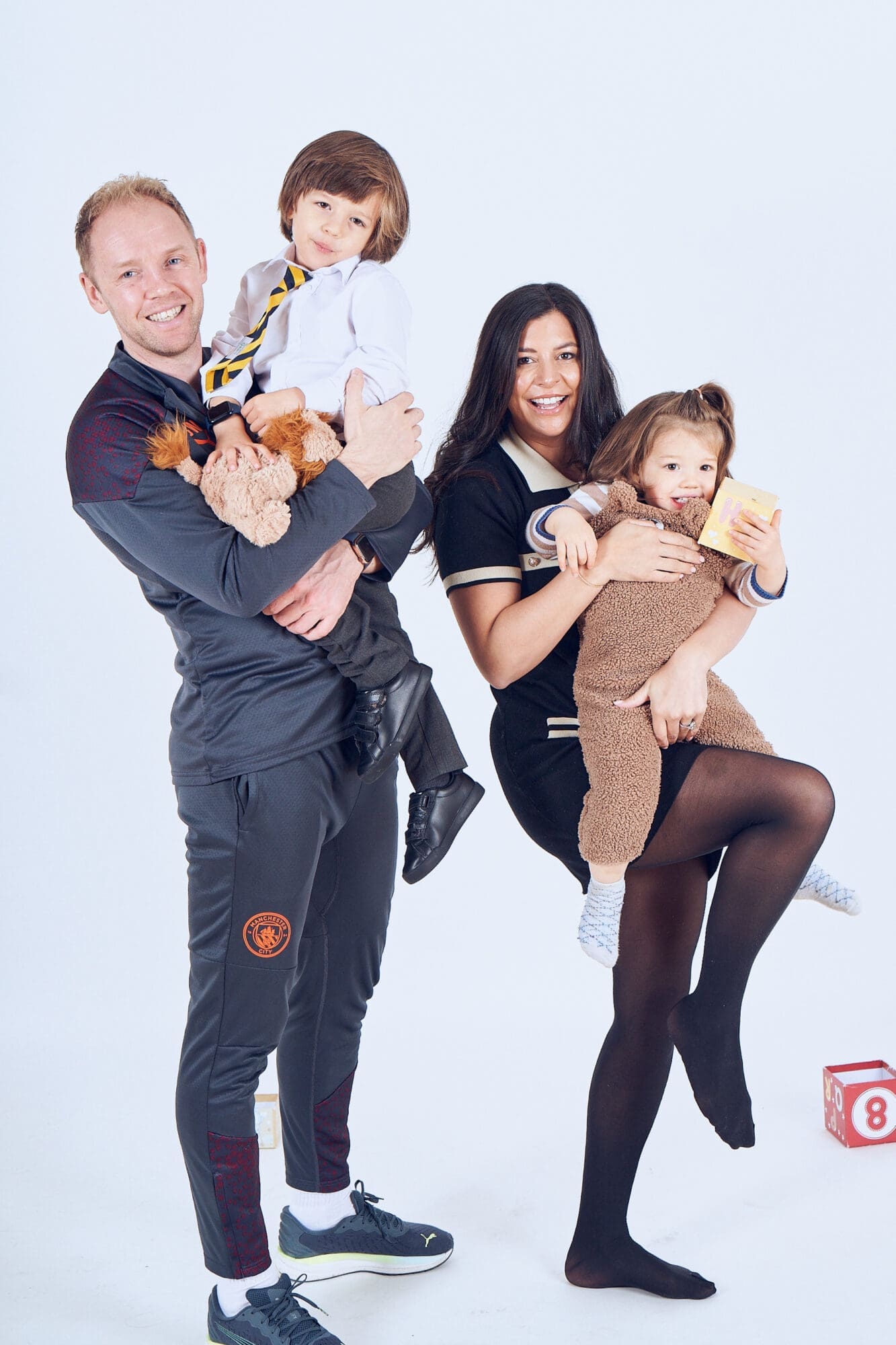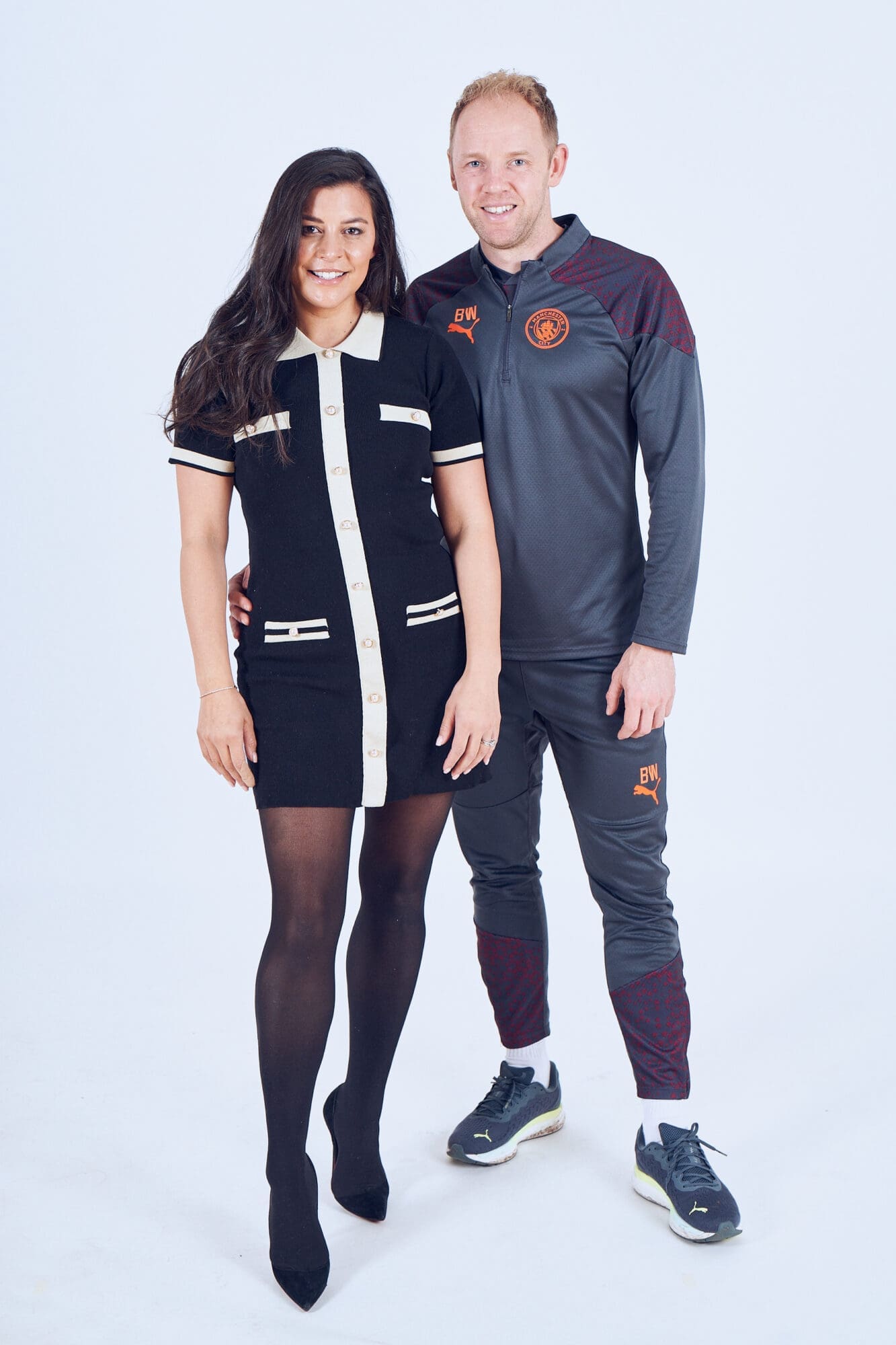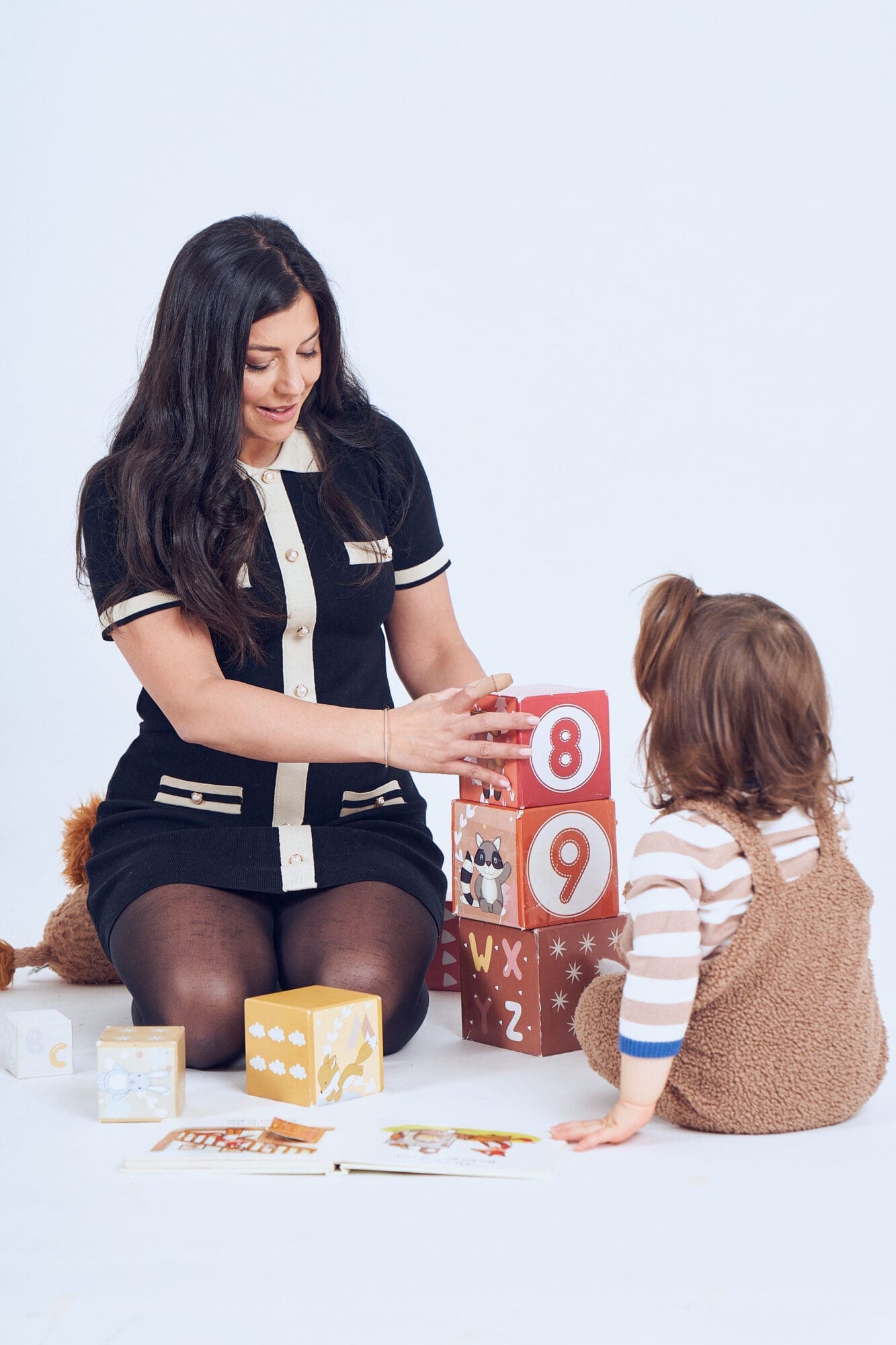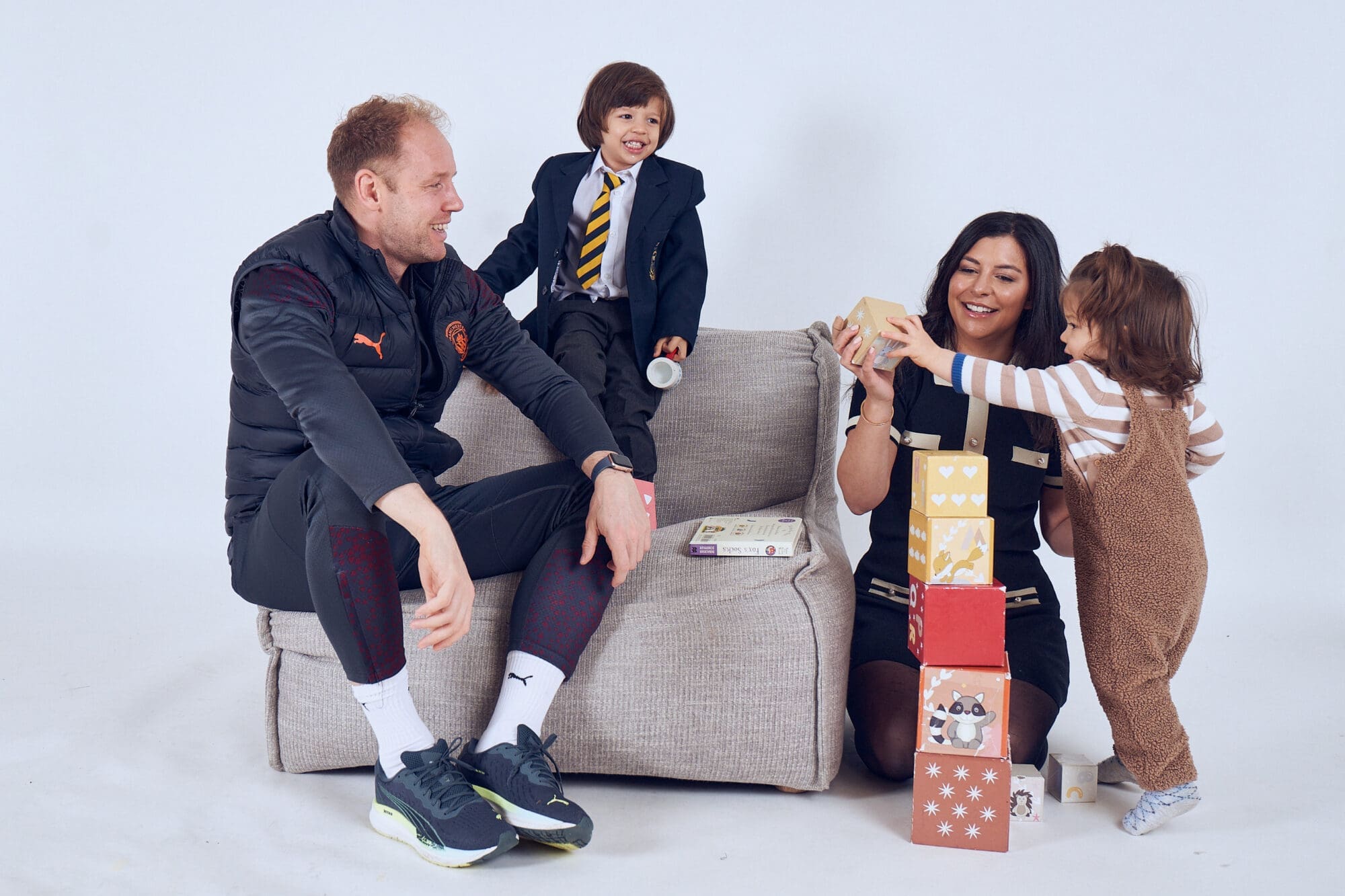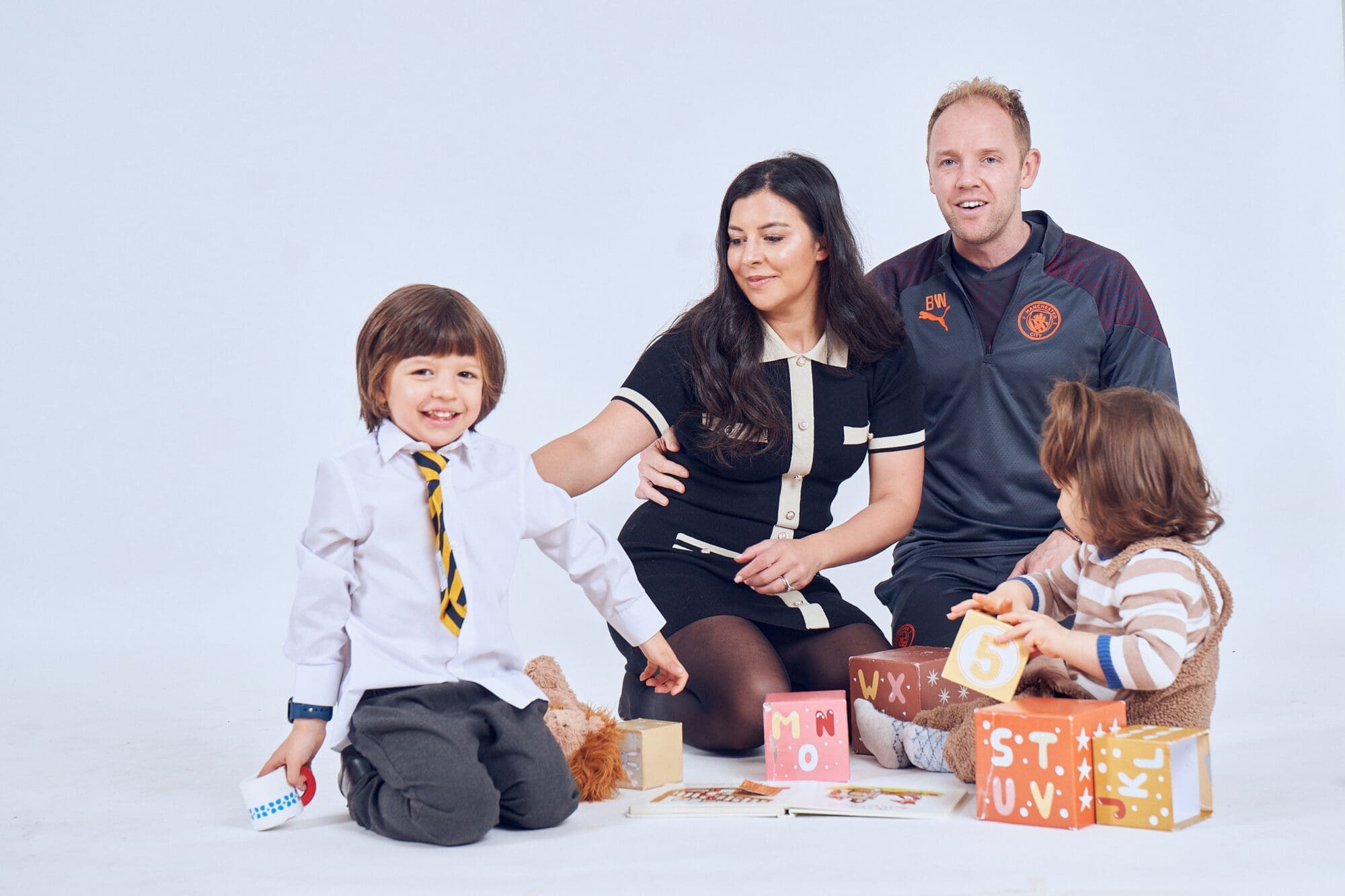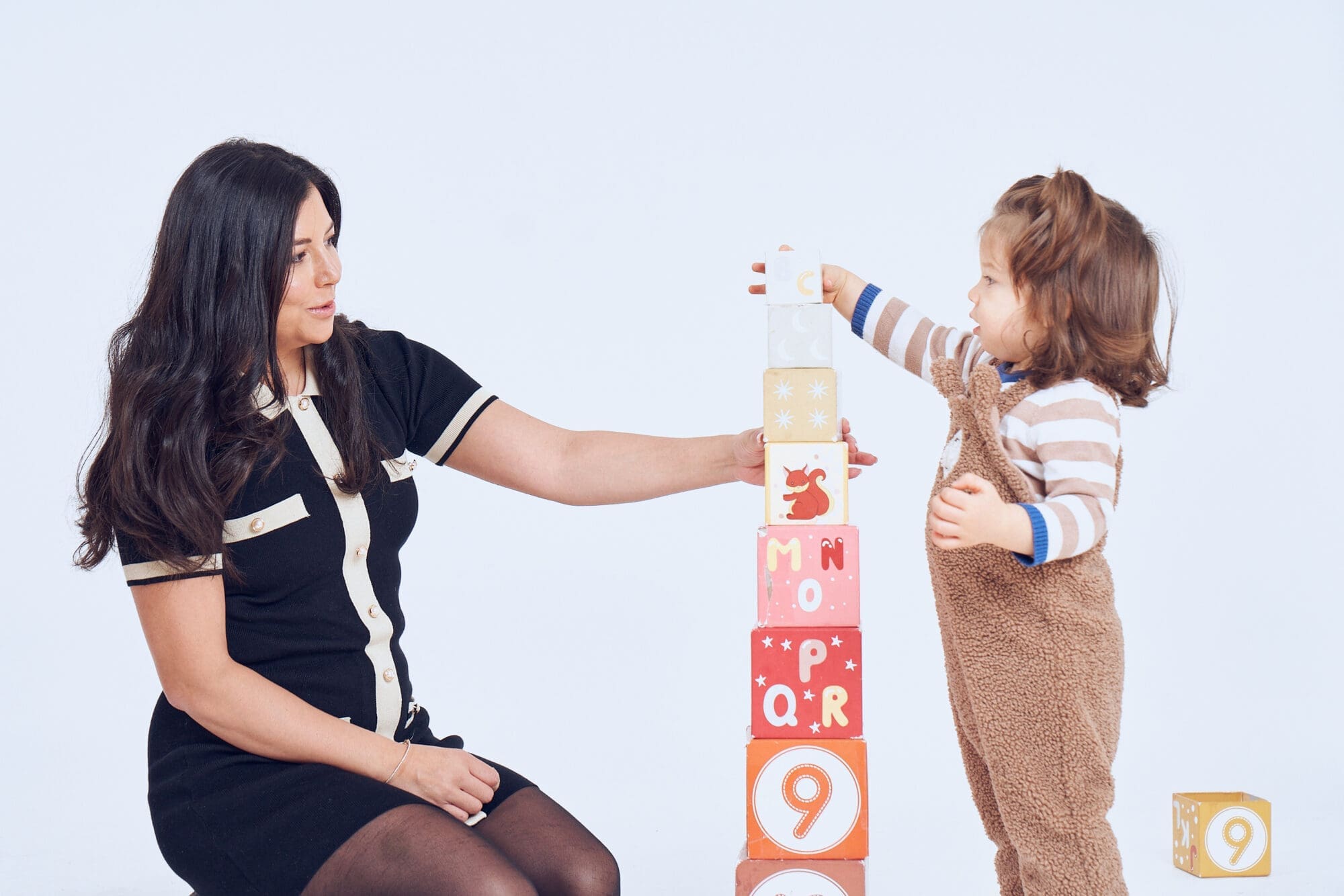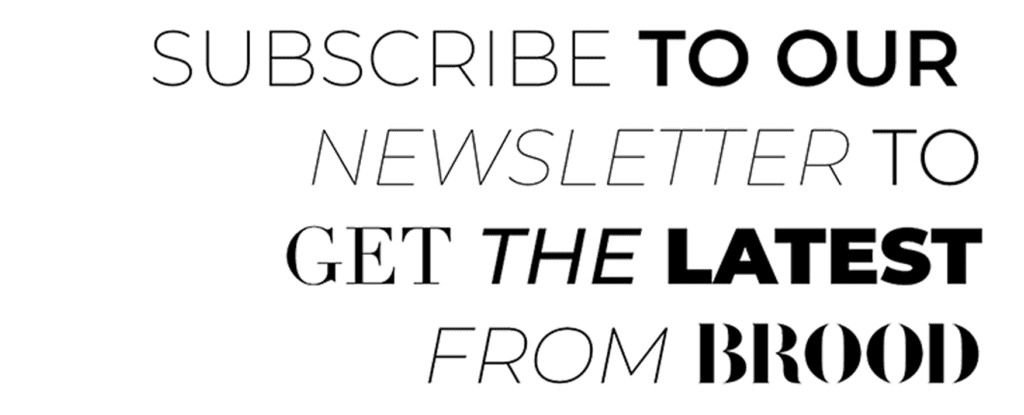“IT DOESN’T MATTER WHAT COUPLES IN SOCIETY DO, IF THEY AGREE TO ROLLING AROUND IN THEIR HIPPY BED, LETTING THEIR BABY SUCK ON THEIR T**S UNTIL YOU’RE BOTH 60, IF THAT’S WHAT YOU WANT – NO ONE SHOULD JUDGE ANYONE, I JUST THINK IT’S REALLY IMPORTANT TO AGREE ON HOW YOU WANT TO RAISE YOUR KID BEFOREHAND.”
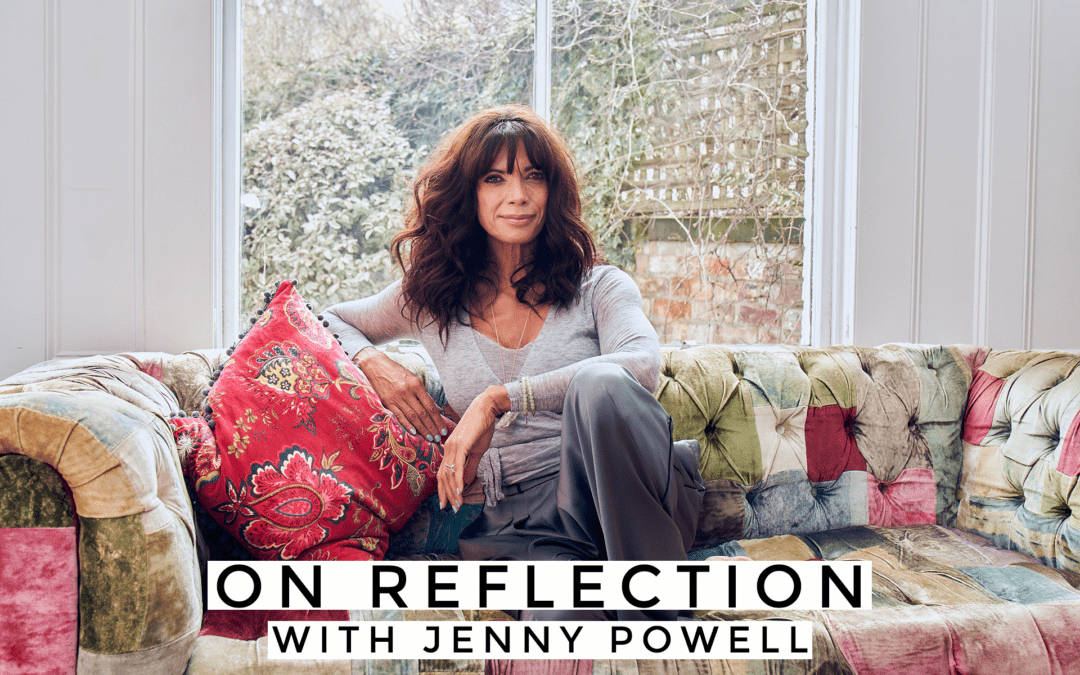
On Reflection with Jenny Powell
Jenny Powell
Jenny Powell is one of Britain’s best-loved presenters, bursting into the scene at only 16 years old. The inspiring Mum of two, Jenny Powell, already had a jam-packed career spanning almost a decade by the time she gave birth to her eldest daughter Connie; and with the help of her parents on the childcare front Jenny continued to go from strength to strength in her career, whilst embracing her new role as doting mum to her lookalike daughter. Eight years later when Jenny welcomed her second daughter, she was thrown into the most challenging time of her life as she separated from her husband who she had been with for 9 years. Despite the turmoil in her personal life and adjusting to being a single mum of two, Jenny threw herself into the challenge of live TV and she tells of how having to flip that switch professionally helped her cope mentally.
Jenny’s girls are now 23 and 15 both thriving, carving out careers in their own passions – with Connie a talented Artist, and Pollyanna, playing for the youth team of a professional football team. Jenny explains how parenting doesn’t get any easier and that the worry only gets worse and you find new challenges as they get older, but how she has found a way to keep a close bond with her daughters, ensuring that whatever they face in their lives they know she is there for them no matter what. Jenny, who alongside juggling her successful presenting career has also been training to become a qualified Yoga teacher which is something she is very passionate about, and it’s clear from the moment you see Jenny the positive impact Yoga has had on her both physically and mentally. Jenny is beautiful both inside and out and it was an absolute pleasure as always to catch up with her at her home and talk about all things parenthood and career, with her rescue dog Elsa very much wanting to join in on the fun!
On reflection: Jenny Powell
AND A retrospective letter to herself
By Jenny Powell
__________________________________
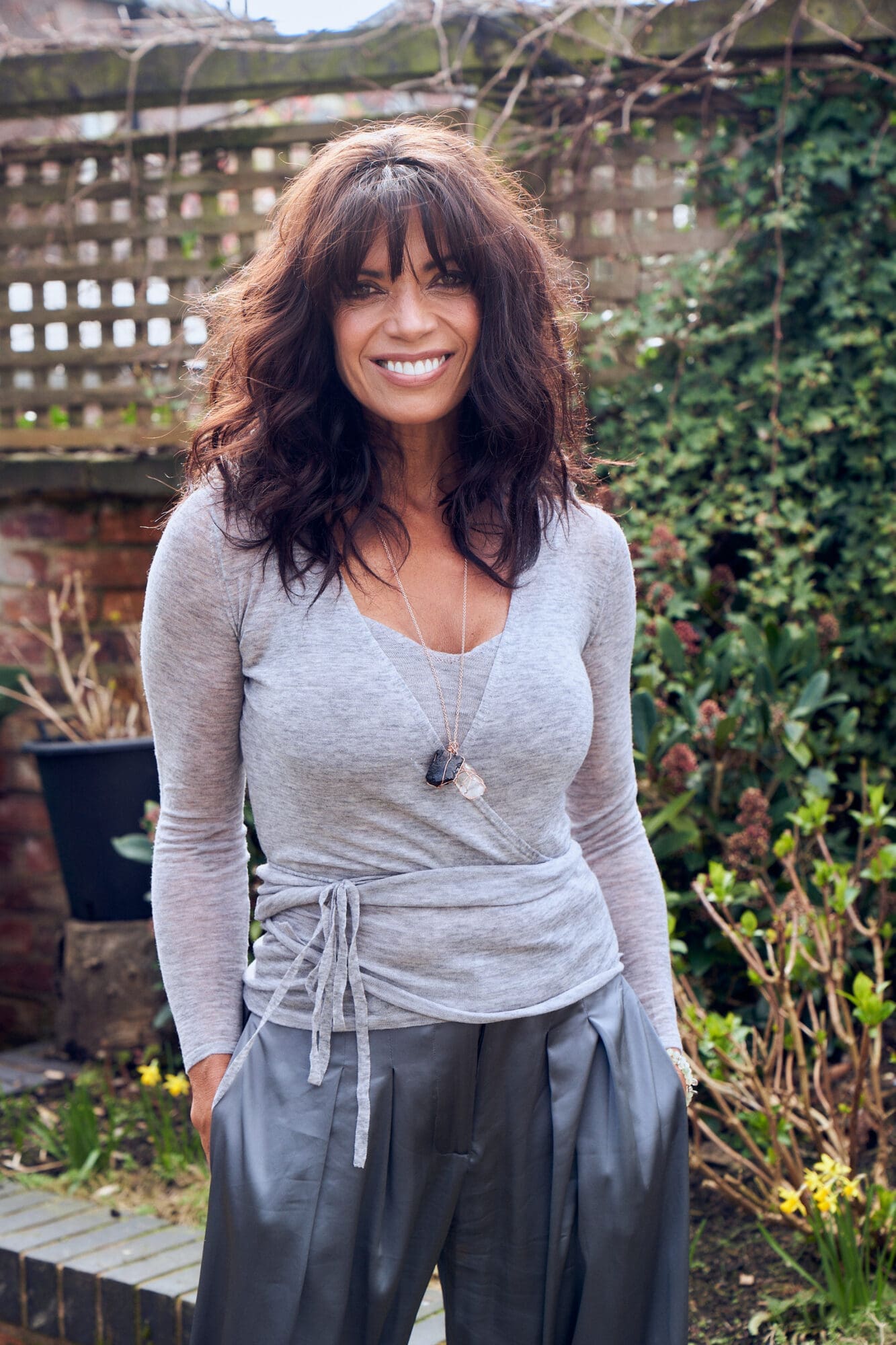
Jenny Powell © Tom Pitfield for BROOD Magazine Ltd
You’ve had such an incredible career spanning just under four decades, what has been your biggest career highlight to date?
“Probably the thing I look at, that makes me smile, where I think – Wow! – was when I did these shows called An Experience With…, and one of them was at the O2 for three nights only and that was interviewing Arnold Schwarzenegger on stage and then I did one with Sylvester Stallone too, and we did that one for 4 nights at all the big venues around the UK. It was just one to one with them on stage and that was when I thought, yes, you know this is my groove. I really, really enjoyed that and it wasn’t like a TV show where you get a few minutes with each guest and they might be there to plug a book for example, but this was an hour and a half and that’s when you can really get to cover everything and get into such great conversations. Especially after you’ve interviewed them a couple of times, and I really enjoyed that experience and that was probably my favourite “
During that time what would you say has been your biggest challenge in your life and career so far?
“Probably when I got divorced. Pollyanna was just a newborn and I was on my own, we had just split up and I had postnatal depression. I was still dealing with the shock of the break up of my marriage, when my agent said to me, ‘Right, you can either go one way or the other and I think you should start working as soon as possible’ – so she put me on a live quiz show! {she laughs] And that’s hard because it’s live you can’t get it wrong, and then of all things, there was a technical problem! They’d said to me in my earpiece, can you fill a gap for 7 minutes! I was live on Channel 5 and 7 minutes is a long time! I felt like looking down the camera and going ‘Are you f#*cking joking! Do you know I’ve had a really shit year, I’ve got a newborn baby, me and my husband have just split up!’ [we laugh] So that was probably the biggest challenge, but it was done for a reason because it was done to challenge and distract me.”
And did that distraction of going back to work help you personally and emotionally?
“Yes, I think so because I just had to flip a switch and put my professional head on. And also I’m most at home when I’m doing my job. I think if I would have stayed at home for any longer without working I could have really fallen apart. I actually secretly – I don’t know why I did it secretly, but I just didn’t want to worry anyone – but there was one morning, Pollyanna was lying next to me and she was only a few weeks old and I just couldn’t get out of bed. I just couldn’t move. I think that was all part of the post-natal depression, but it worried me, the impact it would have on the girls. And I just thought I’ve got to do something, so I just literally went online and found a councillor and I used to tell my mum I was going for coffee and she would look after the girls. And I went to see this lady for 6 sessions and I thought – I feel alright now – I just wanted someone to talk to.”
A letter to myself – Jenny Powell
“This letter comes with an inspiring energy and positivity that you really didn’t expect after an unexpected motherhood as a single Mum for some time. When you were a Mum the first time around with Connie and still married you were juggling with a successful TV career and trying your hardest to be a good mother and don’t ever feel that either roles were compromised. It was fantastic to have your parents on hand full time to help with child care and over the early years of Connie’s and Pollyanna’s upbringing, how wonderful that they secured a special bond with Mum and Dad and how precious the memories are from holidays to school runs and all that’s in between. Thankfully you were always telling yourself not to feel guilty on the days, and weeks you were away filming and remember how you would dash home on the first train, flight back from wherever you were to get to the school gates or make it back for bedtime stories and the girls now say how they loved those little surprise moments! I know you were always a little bit concerned about having an 8 year gap between them unsure if they would bond as sisters, especially through a divorce at the same time as Pollyanna being born but boy there really was nothing to worry about. If anything they are closer, a perfect sisterly unit who look out for each other and always will. I’m so proud of you for keeping on happy and respectful terms with their father and how the girls have a lovely relationship with other partners, siblings, and families and there has been no bitterness or unhappiness on either side that the girls have had to experience. See, you did good! I know at times it’s been tough, wanting to be everything to everyone and still trying to run an efficient ship both at home and at work but I’m loving the way you seem to get a buzz from making things happen for your children and for you even now you’re in your mid-fifties. Look at Pollyanna, you got her to those football trials, now she’s in a professional squad and you have instilled that mindset that anything is possible. Then there’s Connie, remember when you gave her that book, The Secret, in her early teens and how it has made such an impression on her visualising goals and manifesting her dreams. How amazing it was to spend time in New York when you met your fiance Martin who was living there at the time and how the girls embraced the long lovely Summers in Brooklyn and made memories to cherish forever. Looking back though and earlier on when you were divorced you do still feel bothered that you didn’t really consider Connie’s feelings about all moving to Miami for 3 months when she was 12 years old with Martin and Pollyanna. She missed her friends, school and her Dad too but you were on a Miami mission then and nothing was going to stop you! You know what, there have been moments of doubt, if you were doing the right thing for everyone and if you were setting the right example and there will always be those moments, but communication is key and the fact that the girls know they can tell you anything is a huge result! Stick to your mantra for them Jenny, ” There are no rules, visualise what you want and go get it, but most importantly Mum has got your back and from her, your strength will come !”
KEEP UP TO DATE WITH BROOD:
Related Articles
Russell Kane & Lindsey Kane
On Reflection with Jenny Powell
Jenny Powell Jenny Powell is one of Britain's best-loved presenters, bursting into the scene at only 16 years old. The inspiring Mum of two, Jenny Powell, already had a jam-packed career spanning almost a decade by the time she gave birth to her eldest daughter...
10 Alternative ways you can level up your performance
Gaining optimum performance in all areas of our life is surely a goal that many of us are all trying to achieve?
Who doesn’t want to look better, feel better physically and mentally, perform better (in all areas!) and have a stronger mindset?
I absolutely do.


